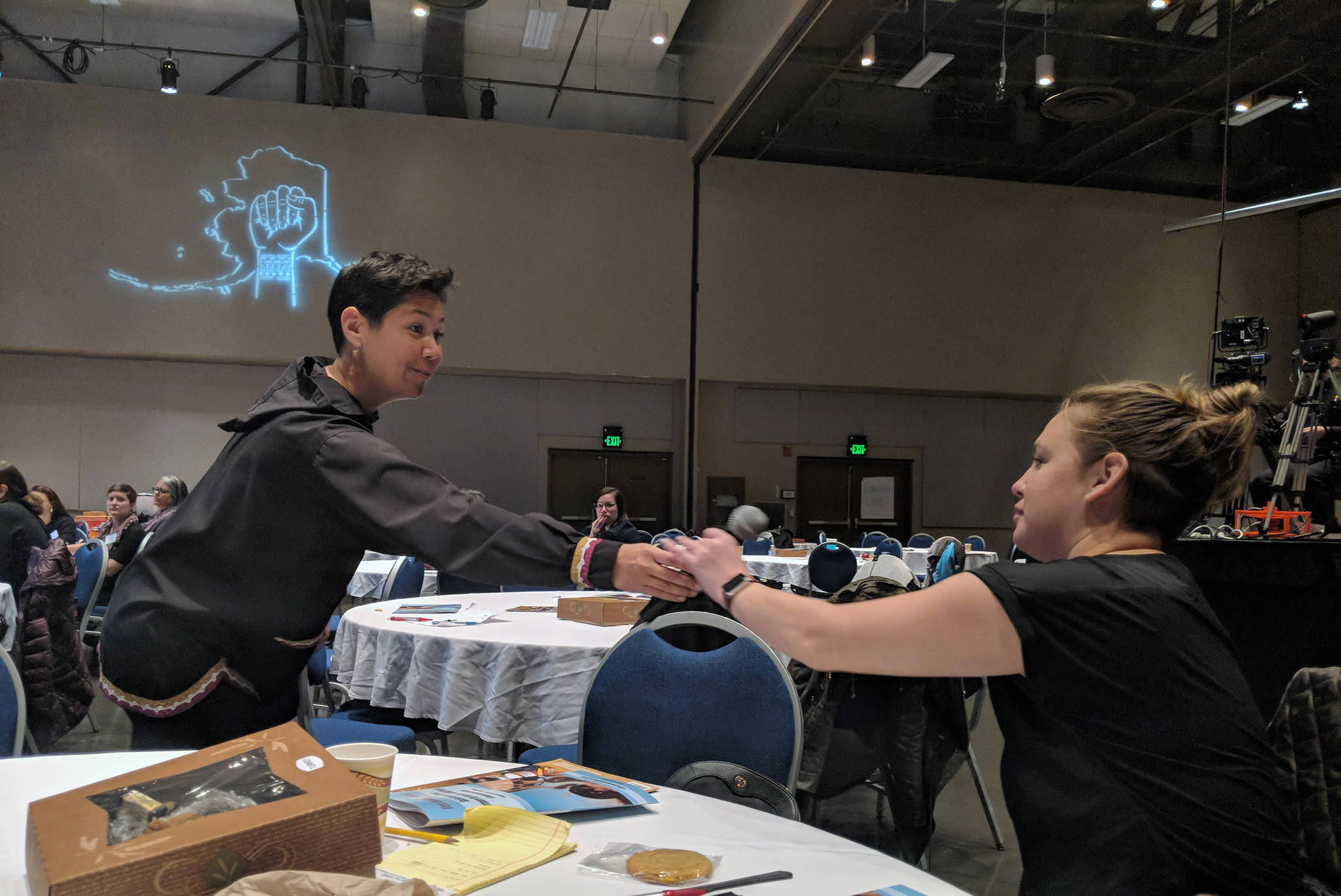To make a 10,000-year partnership work, there has to be understanding.
That was the message on the lips of those in attendance at the Social Justice Doers: Partners for the Next 10,000 Years summit hosted by First Alaskans Institute at Centennial Hall.
“We need to know what the aspiration is to show up and be good allies,” said Andrea Akall’eq Sanders, director for Alaska Native Policy Center toward the end of a Monday afternoon breakout session.
The focus of conversation was, “Ending the Criminalization of Our Ways of Life.”
It was one segment of the two-day summit that spanned eight hours Monday and Tuesday. The summit was recorded and posted to YouTube while still in progress.
Other sessions focused on topics such as how to be good allies and advocates, and honoring ancestors.
Participants Monday afternoon were asked to identify specific instances in which they find the law to be at odds with Alaska Native ways of life.
Those specifically listed by people in attendance included limits placed on Alaska Natives’ ability to harvest resources, school calendars made at odds with hunting and fishing, and the illegality of feather ownership among other topics.
In smaller groups, attendees then honed in on specific issues and discussed steps that could be taken to improve them.
One group talked about valuing and respecting women, another about creating calendars that are more in sync with Natives’ way of life, another addressed food harvesting rights.
The importance of supporting candidates for public office who reflect values capable of causing the change attendees would like to see was often mentioned.
“You have to defeat hate, and you have to vote,” said Kevin McGee, president for the NAACP Anchorage Branch 1000. “You have to get more Alaska Natives into the Legislature.”
McGee, a resident of Alaska for more than 40 years, said there are many challenges that face both African-American and Native Alaskan communities.
This matched Sanders’ advocacy for empathy, understanding and inclusion, which she explained is why she does not like to use the word subsistence when discussing fishing or harvesting.
“It’s an economic term, it’s like hand-to-mouth … to me, it’s a very weaponized word,” Sanders said.
Plus, she said there are people, who are not Native who empathize and connect with that concept.
“If we cast a wider net, we can have some folks in our squad,” she said. “We’re trying to normalize (our way of life), and we hope it’s inclusive.”

